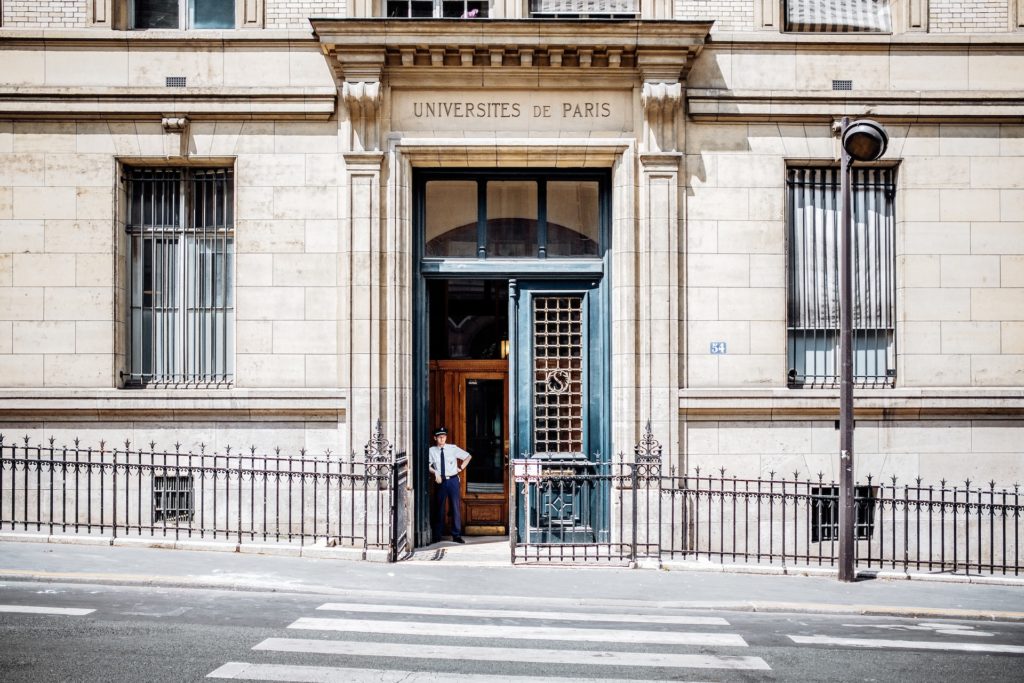France’s higher institutions attract international students. the French universities, grande école is like Ivy League universities. The schools are specialized, offering a wide range of courses and programs at nominal fees. Millions of international students are attracted to study in France every year.
France is committed to treating both national and international students equally, the tuition fees are identical and low to obtain national diplomas/degrees, and students gain the same access to other benefits like housing assistance and health insurance.
France is the fourth most popular international student destination after other countries like the US, UK, and Australia. Prospective students troop into the country to acquire their bachelor’s or post-graduate (master’s and PHDs) degrees.

Types of universities in France
France has over 250 elite institutions called grande école, there are 83 public universities, and many other research institutes and specialized schools. Grandes école is regarded as the most prestigious higher education institution in France. These institutions led to the development of politicians, top civil servants, and scientists. École polytechnique and École Normale Superieure which are in the world ranking are part of grandes école. They can be public or private, and entrance admission into these institutions are highly competitive entrance exams. They offer programs in English and have enrolled over 30,000 international students.
Public Universities are attended by over 80% of university students in France, and 10% are international students. Those with baccaulauréat (or equivalent) are eligible to be enrolled in all disciplines. The government of France funds public universities and internships are often provided.
Institute for research, art, and architecture, colleges of fashion, film, performing arts, journalism, social work, and other specialty are available.
Many universities, research, and specialized schools are grouped under the cluster for higher education and research also referred to as PRES (poles de recherché et d’enseignement), they collaborate on courses, research, and resources, sometimes, degrees are awarded by the PRES for the institutions.
Top universities in France
The universities in France are of high quality. In the ranking of the Times Higher Education World University Rankings 2014-2015, two of France’s educational institutions were listed in the top 100: École Polytechnique ranked 61 and École Normale Superieure ranked 78. Five universities were also among the top 200 which include Pierre and Marie Curie University ranked 103, Paris-Sud University ranked 120, École Normale Superieure de Lyon ranked 160, Joseph Fourier University ranked 178, and Paris-Diderot University – Paris 7 ranked 180.
Qualification awarded in France Universities
The universities follow the Bologna ECTS (European Credit Transfer and Accumulation System) pattern to award degrees to students. there are three levels of national diplomas (diplomes nationaux) awarded by French higher institutions:
License (equal Bachelor’s degree)
This is awarded after studying for three years, and 180 ECTS.
Master’s degree
The program is divided into research for those with plans to progress onto a doctorate (Ph.D.), or professionals who want to work in their fields after graduation, and it last for two years, and 120 ECTS.
National doctoral degrees (Ph.D.)
The program is for three years, and 180 ECTS.
Language proficiency requirement
To qualify for admission into French universities to study an undergraduate course, you will need at least know an intermediate level of French, and you may be asked for proof of your language skills, such as the B2 (intermediate) certificate or the C1 (advanced) certificate or you will have to sit for a language test.
There is a large number of courses offered in English at the postgraduate level, but you have to be sure if the course is offered in English before applying.



